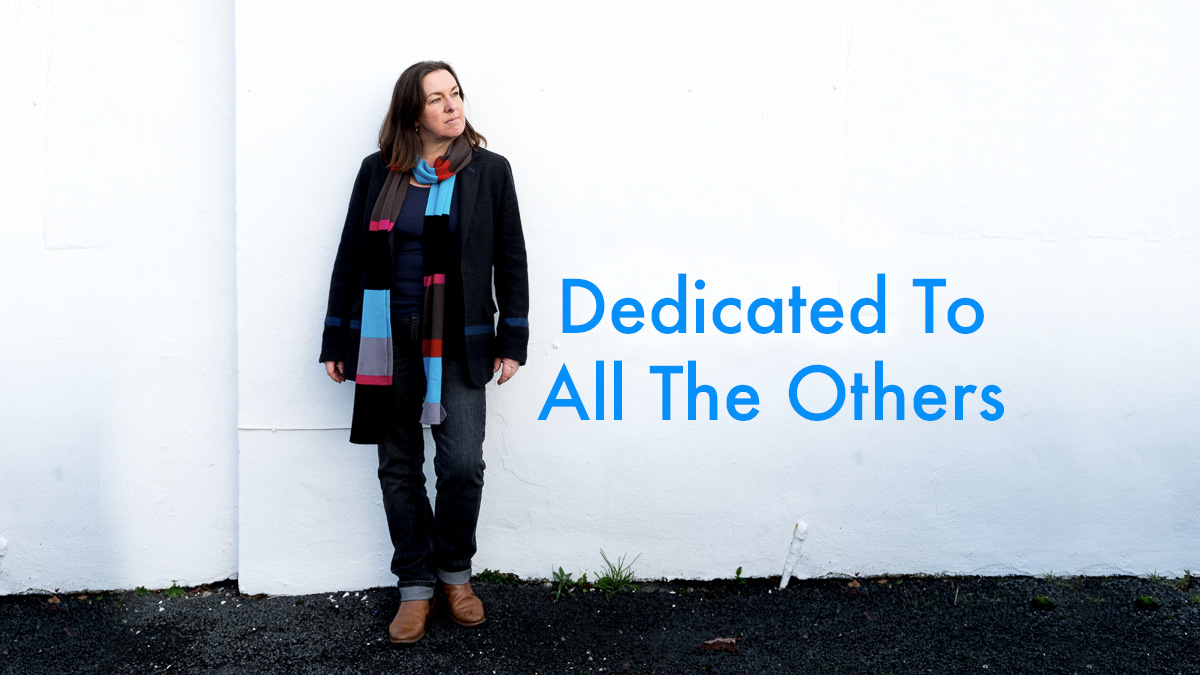Your cart is currently empty!
Dedicated to All the Others: Lily P
Speaking and reading words can be a challenge when you’re shocked, depressed, or tired.
Lily P. Specialist counsellor
Lily P is a specialist counsellor, registered with the British Association of Counsellors and Psychotherapists (BACP) with thirty years experience in the field, based in London, writing under a pseudonym for this project.





Becoming Unbecoming from a therapeutic perspective
I’ve been a therapist for thirty years plus, and have met and worked with many people, (mostly, but not exclusively, with women), the majority of whom have experienced abuse and violence, some, like Una, throughout their childhood, and beyond.
Over the years people have asked, “How do you do that? It must be so depressing.” But by the time I get to meet a person, they’ve already been through war zones, (sometimes officially designated, other times not), and lived to tell their tale, so no, that part of my work is anything but depressing, because they’re in front of me, looking for help with whatever might happen next.
What angers me is that so many people are made to believe that they are responsible for what is done to them. Which is one of the reasons that Una’s book “Becoming Unbecoming” is a valuable resource, which bears witness, educates, puts forward hard facts and analyses arguments.
Una expresses herself through different techniques, such as evoking wordless moods through loose pen and ink pieces; using print, photographic techniques, and varied fonts to deliver factual information.
Bearing witness to the way someone remembers their experiences is an important therapeutic task. Memories are renowned for surfacing out of chronological order, and are seldom organised according to the demands of, for example, a legal statement. And not all memories are words.
Speaking and reading words can be a challenge when you’re shocked, depressed, or tired. When your mind is too full, or foggy, or otherwise engaged, to make sense of words, and signs and letters just seem like a jumble of shouts, pictures can still evoke embodied recollections and feelings.
And if they can read a story in a way of their choosing, perhaps they become emboldened to tell their own story in a way of their choosing.
“Becoming Unbecoming” can be read cover to cover, in page order, but there is also value in flicking through the pages, seeing where your eyes rest, and what images you are drawn to at any given time. This “dialogue” type of reading helps the people I work with to acknowledge that they can control where, when, and what they look at. And if they can read a story in a way of their choosing, perhaps they become emboldened to tell their own story in a way of their choosing.
The experiences Una shares, highlighting the blaming and shaming of women who are ignored and vilified at the same time – reduced to one dimensional sound bites, then witch hunted and othered, silenced and/or ignored, resonate with so many memories women have shared with me. The book can help them articulate, “It was just like that for me”, or “It wasn’t quite like that for me”: Either way, this opens discussion, and so breaks the silence.
I meet too many people who have been taught, and believe, that we live in a meritocracy and that they have failed. Una’s personal history in “Becoming Unbecoming” is interwoven with historical context and acute observations on institutional rigidity, ignorance, and ignoring – these last two being similar, yes, but not the same. I remain aware of the impacts that life circumstances have on individuals and cannot practice as a therapist without holding context in mind.
Currently, this is often referred to by Kimberle Crenshaw’s term “Intersectionality”, defined as – “the complex, cumulative way in which the effects of multiple forms of discrimination (such as racism, sexism, and classism) combine, overlap, or intersect especially in the experiences of marginalized individuals or groups”, and Una lays out the headline grabbing sound bites and a commentary that illustrate the dangerous ordinariness of male privilege and state sanctioned misogyny that prevailed at the time of the Sutcliffe murders, and that linger today.
Thanks Una
Lily P
Thanks for reading. Read about Una’s creative writing project for survivors, rooted in Becoming Unbecoming here.

